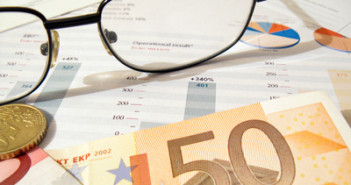EUR/USD has enjoyed a great week, and the pair is steady ahead of a crucial FOMC meeting later today, amid speculation that the Federal Reserve may announce QE3. Will Bernanke finally pull the trigger? Or will he wax eloquent but stand pat? The euro got a nice boost from Wednesday’s decision by a German court that the ESM bailout package was constitutional. However, the court did set conditions on German participation. In the Netherlands election, the conservative Liberal party won the most seats, but caretaker PM Mark Rutte will now be tasked with forming a new coalition government. In addition to Bernanke’s remarks later today, the markets are awaiting a host of releases out of the US, highlighted by Unemployment Claims and PPI.
Here’s an update about technical lines, fundamental indicators and sentiment regarding EUR/USD.
EUR/USD Technical
- Asian session: Euro/dollar continued to move up, touching a high of 1.2930, before consolidating at 1.2926. The pair remains steady in the European session.
- Current range: 1.29 to 1.2960.
Further levels in both directions:Â Â 
- Below: 1.29, 1.2814, 1.2750, 1.2670, 1.2624, 1.2587, 1.2520, 1.2460, 1.24, 1.2360, 1.2330 and 1.2250.
- Above: 1.2960, 1.30, 1.3060, 1.3105, 1.32 and 1.3290.
- 1.29 is providing weak support.
- 1.2814 is stronger, and temporarily capped the pair before the pair’s recent rally.
- 1.2960 is the next line of resistance.
Euro/Dollar steady before FOMC meeting – click on the graph to enlarge.
EUR/USD Fundamentals
- 8:00 ECB Monthly Bulletin.
- 12:30 US PPI. Exp +1.1%.
- 12:30 US Unemployment Claims. Exp 370K.
- 12:30 US Core PPI. Exp. +0.2%.
- 14:30 US Natural Gas Storage. Exp. 26B.
- 15:30 US 30-year Bond Auction.
- 16:30 US FOMC Statement. Look for EUR/USD to rise further if the Fed announces QE3.
- 16:30 US Federal Funds Rate. Exp. <0.25%.
- 18:00 US FOMC Economic Projections.
- 18:00 Federal Budget Balance. Exp. -156.1B.
- 18:15 FOMC Press Conference.
EUR/USD Sentiment
- All eyes on FOMC: Last week’s US Non-Farm payrolls were a big disappointment, and speculation has increased that the Fed will take action at today’s crucial FOMB meeting. Will Bernanke finally pull the trigger on QE3? Let’s not forget how he poured cold water on the idea just a few weeks ago in Jackson Hole – the Fed Chair reiterated that the the Fed would not step in unless economic conditions warranted such a move. Analysts are split on what the FOMC will decide to do – a poll taken after the weak NFP numbers found that 60% of economists believe that the Fed will launch QE3. Whatever decision the Fed makes will likely have a lasting effect on EUR/USD.
- German Court Upholds ESM: In a highly-anticipated decision, Germany’s Constitutional Court upheld the legality of the European Stability Mechanism as it stands for Germany. However, the Court did set some conditions, stating that Germany’s liability under the EMS cannot exceed 190 billion euros without approval of the lower house of parliament and, both houses of parliament must be kept informed about decisions relating to the ESM. The court’s ruling now paves the way for ratification of the OMT by EU officials.
- OMT can move forward: After relentless criticism of the ECB for its tepid response to the debt crisis, it’s safe to say that ECB President Draghi delivered the goods. The ECB presented the Outright Monetary Transactions program: unlimited bond buying of bonds up to three years in maturity, provided that the country asks for aid. With the German Constitutional Court giving the nod to German participation in the ESM, Draghi can now move forward with OMT.
- Liberal party claims victory in Netherlands election: In a tight election that could affect the Netherland’s position in the Euro-zone, the conservative Liberal party has claimed victory. Caretaker PM Mark Rutte will now have to cobble together a coalition government. The Netherlands has traditionally been a close ally of Germany, but the anti-Euro sentiment is strong, especially with the debt crisis and fiscal problems affecting the Euro-zone.  Although the Liberal party favors adhering to the country’s deficit-reduction targets, the new coalition may be less enthusiastic about the Euro-zone at a critical juncture for both the zone and the continental currency.
- Spain expected to ask for aid from ECB: The economy in Spain shows little sign of recovery, and the country is getting closer to asking for aid from the ECB. This will likely occur after the European finance ministers convene. After Catalonia asked for 5 billion euros of aid, its southern neighbor joined in line for a handout. Unemployment in Spain is on the rise and the flight of capital is getting worse. There was no no good news on the banking front either – after reporting heavy losses, Bankia will receive an injection of 4.5 billion euros from Spain’s state bank bailout fund.
- Greece struggles with harsh austerity program: Greece’s three coalition partners are still unable to agree on new austerity, as the economy continues to contract. In the meantime, anti-austerity parties have gained in the polls, and dismal unemployment figures worsened, as the unemployment rate rose to a staggering 24.4%, up from 23.5%. The government has no easy task in trying to implement cuts of 11.5 billion euros, which is necessary in order to received further bailout payments. Greece President Karolos Papoulias implored international creditors Tuesday to ease their fiscal demands, saying that the country has suffered a “merciless lashingâ€. Tough negotiations between the troika and the government are continuing in Athens.



